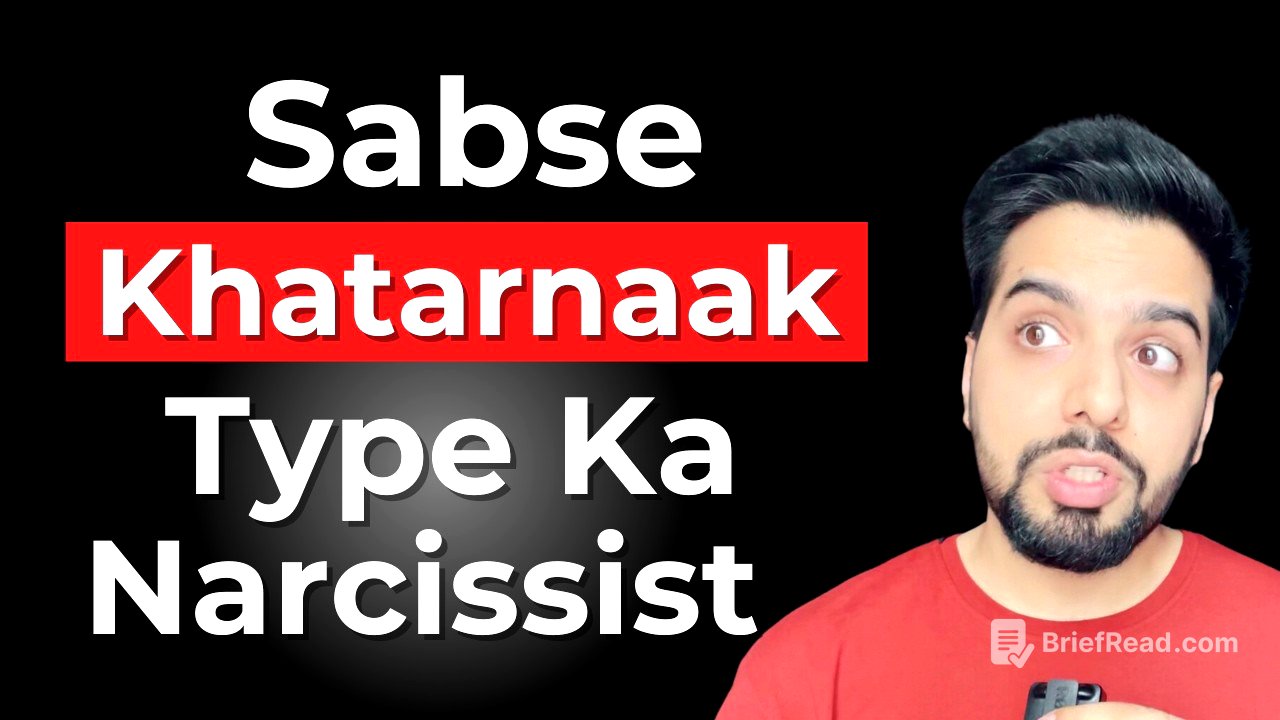TLDR;
This video explains covert abuse, a subtle and dangerous form of abuse, and how to identify it. It differentiates between overt and covert narcissists, detailing their characteristics and manipulative tactics. The video also highlights the dangers of covert narcissistic abuse, including confusion, lack of proof, and the difficulty others have in believing the victim.
- Covert abuse is a hidden form of abuse that can be more damaging than physical abuse.
- Covert narcissists are sensitive and emotional, pretending to be caring and friendly.
- They use tactics such as back-handed compliments, silent treatment, and gaslighting to manipulate their victims.
- The abuse is dangerous because it creates confusion, lacks visible proof, and is often disbelieved by others.
Introduction to Abuse in Society [0:00]
The discussion on abuse in society is often limited to physical abuse, but there are many types of abuse, with covert abuse being the most dangerous. Covert abuse is subtle and hidden, without physical altercations or shouting, yet it can be more damaging than physical abuse. Victims of covert narcissists may take a long time to heal.
Understanding Covert Abuse [1:26]
To understand covert abuse, it's important to understand the personality of a covert narcissist. There are two main types of narcissists: overt and covert. Overt narcissists are grandiose and arrogant, making others feel small and lacking empathy. They are cold, vicious, and enjoy punishing others, hiding their insecurity behind superficial confidence. They are charismatic and charming, making a magical first impression.
Traits of Covert Narcissists [1:26]
Covert narcissists are sensitive and emotional, often crying and pretending to be caring. They are friendly and easy to get along with, showing no signs of arrogance on the surface. However, behind this mask, they are dangerous, with hidden arrogance. They like to play the victim and often don't abuse physically, but use words and psychological games to destroy their victims. They are like a wolf in sheep's clothing, with cunningness hidden beneath the surface.
Covert Narcissist's Manipulative Tactics [6:13]
Covert narcissists belittle others jokingly, using back-handed compliments to humiliate them in a hidden way. They show passive aggression, such as giving the silent treatment or stonewalling when someone does something they don't like. Unlike overt narcissists who punish directly, covert narcissists abandon their victims, ignoring them and treating them as unimportant.
Gaslighting and Mental Torture [7:34]
Covert narcissists are masters of gaslighting, changing reality and convincing victims that their memories are false. They gaslight through both words and actions. For example, if confronted about hurtful words, they may deny saying them or even start abusing themselves to guilt the victim into apologizing.
Personal Experience with Covert Narcissism [7:34]
The speaker shares a personal experience with their mother, who is a covert narcissist. She would deny saying hurtful things and immediately play the victim, making others feel guilty. Narcissists have a victim complex, feeling that they are the biggest victims of life and constantly complaining. They divert attention to themselves to gain empathy, acting as empathy vampires. They also exhibit vulnerability, reacting extremely negatively to any feedback.
The Danger of Covert Narcissistic Abuse [7:34]
Covert narcissists attack secretly, isolating their victims through sweet words or by playing the victim. They have a shape-shifting nature, being very nice initially but turning negative later. Their anger is more dangerous than that of overt narcissists. The reasons covert narcissistic abuse is so dangerous include the confusion it creates due to their changing nature, the absence of proof (plausible deniability), and the disbelief of others. This leads to low self-esteem, self-doubt, and depression.
Conclusion and Viewer Engagement [7:34]
Covert narcissists control through guilt and obligation, often using cultural and religious gaslighting. People often disbelieve victims of covert narcissism, making the trauma worse. The speaker encourages viewers to share their experiences and comment on which part of the episode they liked the most.









